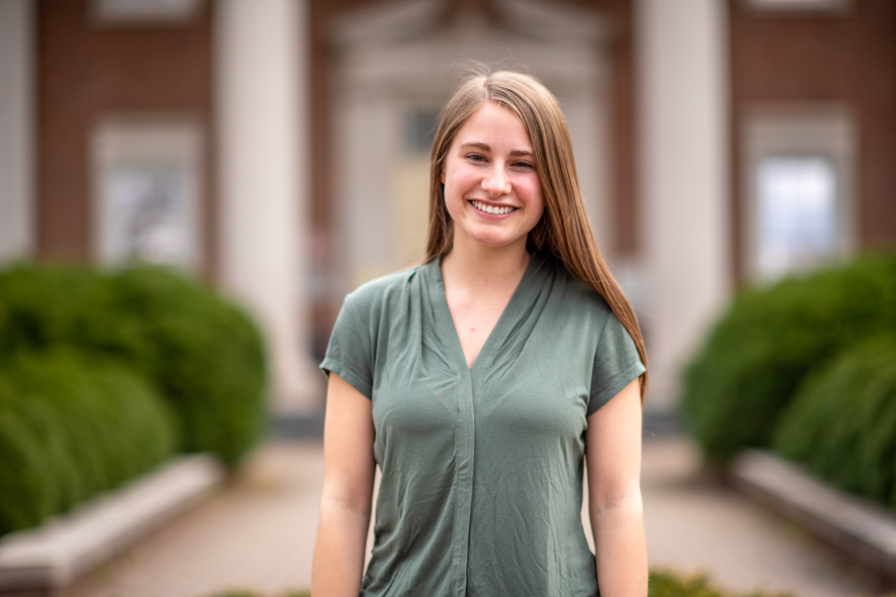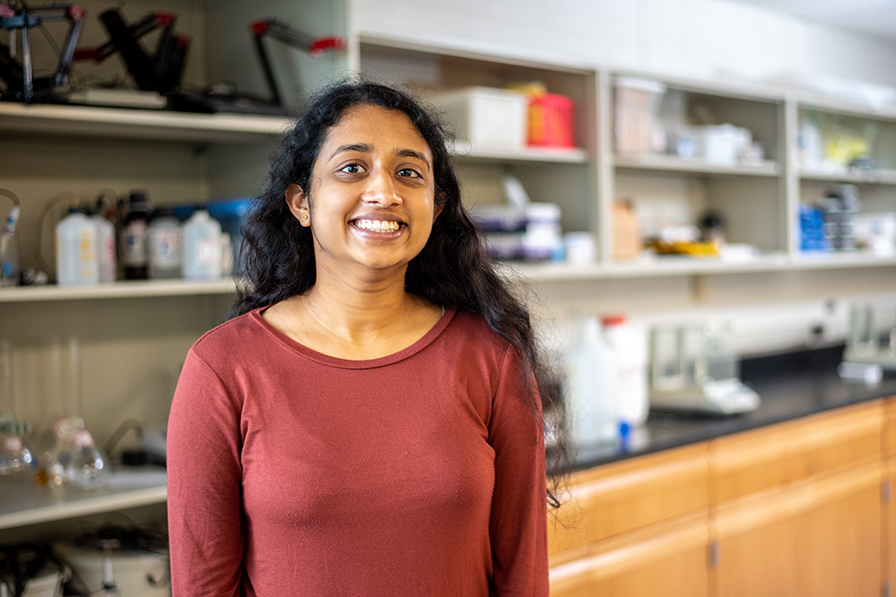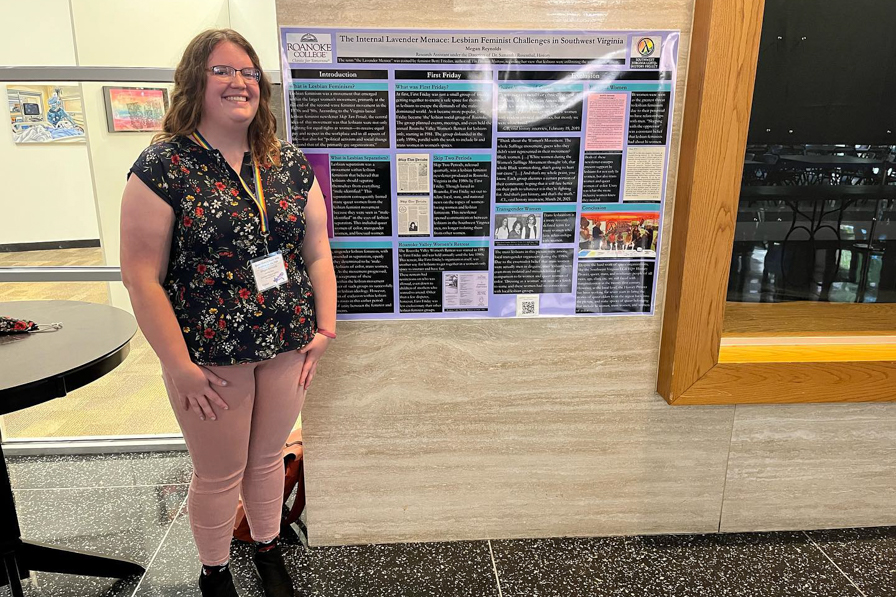Research
Our students conduct graduate-level research as undergraduate students, which helps to set them up for success after graduation. At least 45% of our graduates go on to earn advanced degrees.
Roanoke College students choose from multiple pathways into research, whether they want to assist a professor with a semester-long project, spend a summer conducting research on or off campus, travel overseas, or even dedicate all four years of their college experience to working with a faculty mentor.
Can you see yourself conducting research for a full semester in Europe? Spending the summer at work with the National Park Service or National Institutes of Health? How about getting paid to work with a professor in an on-campus laboratory? This is just the tip of the pipette when it comes to research opportunities at Roanoke College.
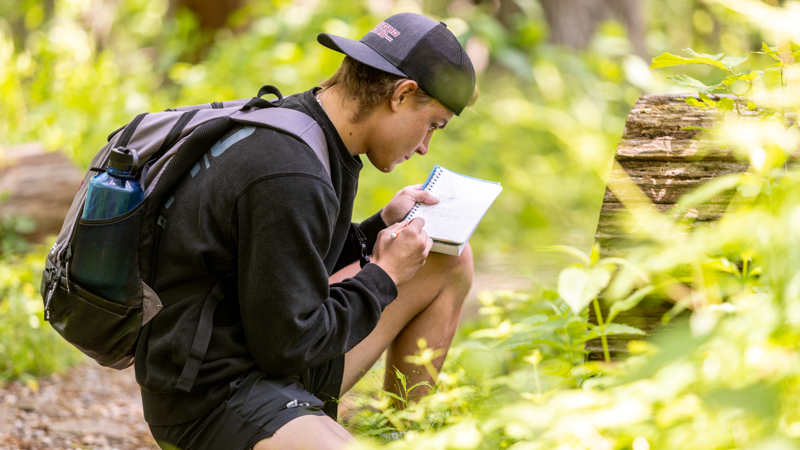
45% of Roanoke grads earn advanced degrees.
Real-world research experiences
-
For Charissa Roberson '22, French and creative writing came together for an immersive, bilingual experience.
-
Kavya Iyer '22 (pictured) and Bryn Haden '22 presented their research at a national conference about public health issues.
-
As an undergraduate research fellow with the Southwest Virginia LGBTQ+ History Project, Megan Reynolds '23 helped complete the digitization of the region's longest-running gay newsletter.
"The rigor of the classes and ample opportunities to conduct research really increased my abilities to navigate the complex field of research as a graduate student. The professors at Roanoke are there to make sure you learn, succeed, and have fun, and I can’t thank them enough for it! I’m looking forward to continuing my passion of advocating and learning about pediatric health and development into my graduate school years."
Kavya Iyer '22
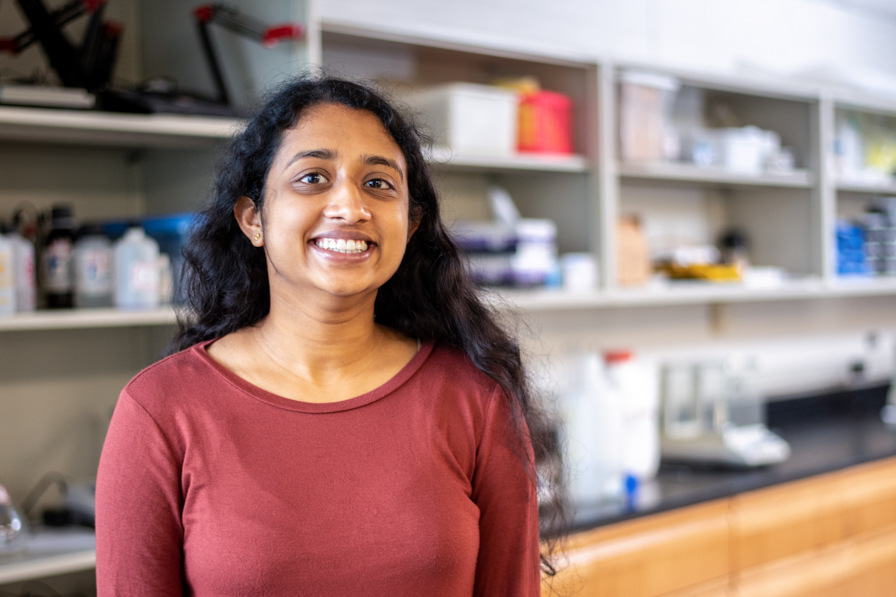
Summer Scholars
The competitive Summer Scholars program allows students to spend the summer working one-on-one with a faculty member on an important research project.
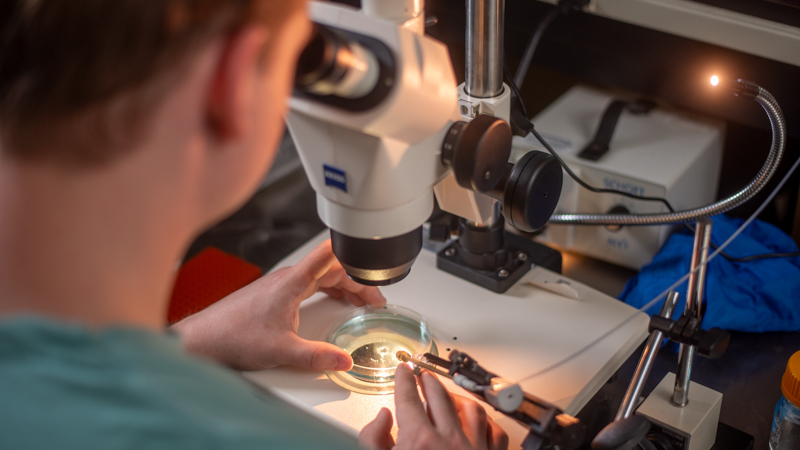
Affordability
If that all sounds exciting but potentially expensive, rest assured that funding may be available to make your research goals a reality. Many research opportunities come through paid internships, while others are available to work-study students. Additionally, some programs may be accompanied by free housing, stipends and other incentives. Our faculty and staff are on hand to guide students toward research opportunities, including those made possible with scholarships such as the Fulbright or Gilman awards.
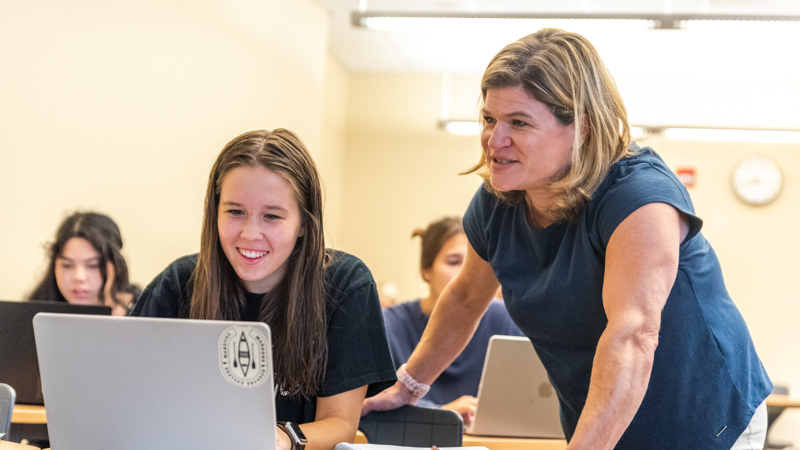
Teachers, Scholars and Mentors
Roanoke College faculty are passionate lifelong learners, and they love bringing student researchers along on their intellectual discoveries. These faculty members are just a small sampling of the Roanoke professors who offer research opportunities for students.
-
Daisy Ball
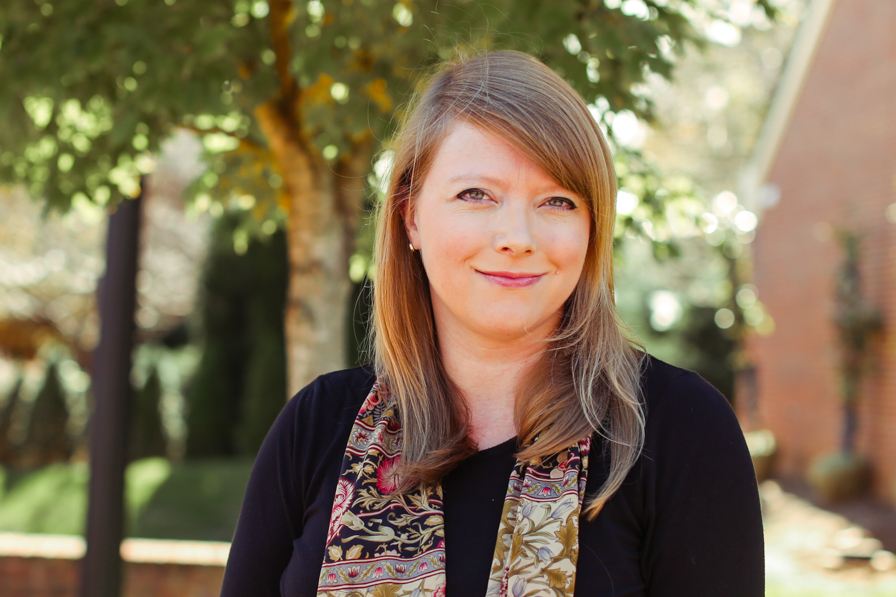
Daisy Ball, an associate professor in the Department of Public Affairs, is conducting research into the partners of formerly incarcerated individuals. During summer 2022, she and James Suleyman '24 conducted almost 60 in-depth interviews with people across classes, cultures and regions in order to chronicle their experiences. Suleyman also assisted with transcribing and coding the data. In the long run, they hope to publish articles about their findings and present their work at a criminal justice conference.
-
Rachel Collins

Biology Professor Rachel Collins has been studying smooth coneflower, a federally listed threatened species, for a decade. More than 15 students have worked on this research initiative, measuring the growth, survival and reproduction of plants at three sites in Montgomery County, Virginia, and Franklin County, Virginia. Recently, Olivia Aaron '24 and Lauren Young '25 presented their results on how herbivory from white-tailed deer impact this rare plant.
-
Jesse Bucher
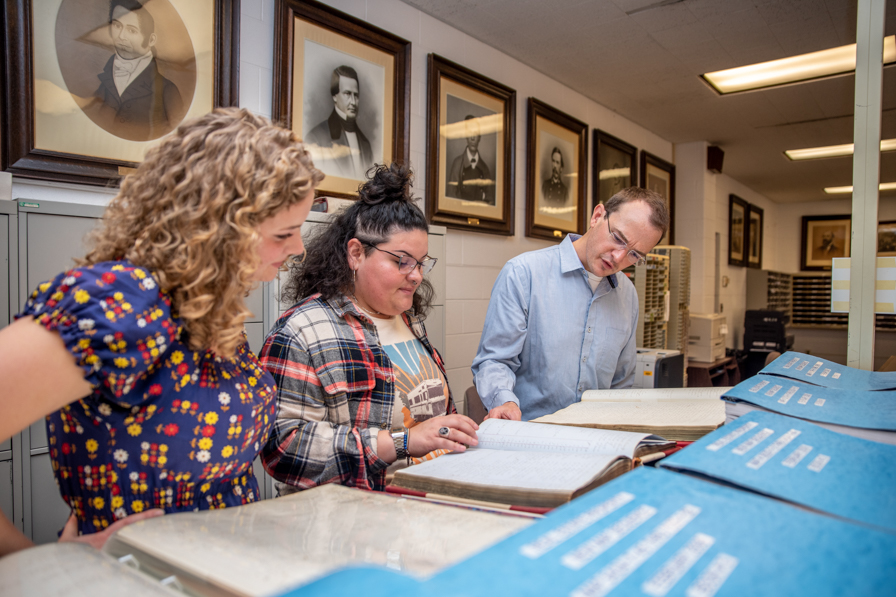
History professor Jesse Bucher, college historian and director of the Center for Studying Structures of Race, works with students to research Roanoke College history. One student, Ivey Kline '23, helped Bucher launch the Genealogy of Slavery Project, which is dedicated to uncovering information about enslaved people who helped build Roanoke College. She also spent a summer assisting Bucher with research into Georgianna Saunders, a Black midwife in Southwest Virginia between 1914 and 1940. Research by Bucher and students fills in the gaps about important Black figures, including midwives, who were left out of the history books.

